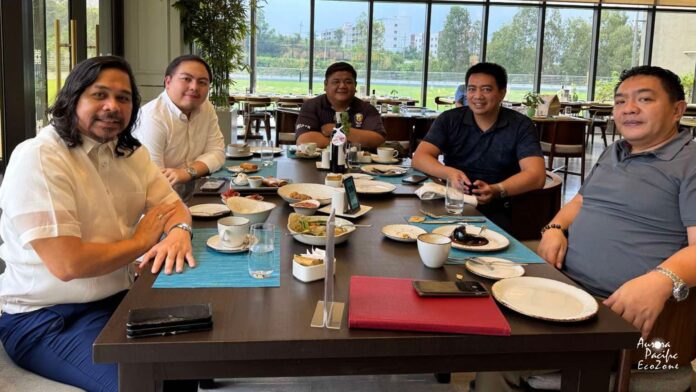The Aurora Pacific Economic Zone and Freeport Authority (APECO) has reaffirmed its partnership with the National Commission on Indigenous Peoples (NCIP) to jointly implement inclusive programs aimed at empowering indigenous peoples (IPs) within and around the ecozone.
In a recent meeting, APECO president and CEO Gil G. Taway IV and NCIP Region III director Roman A. Antonio discussed key initiatives, including the establishment of an Indigenous Peoples Cooperative, a Joint Management Agreement (JMA), and the Free and Prior Informed Consent (FPIC) process for delineating ancestral domains.
“Our partnership with NCIP anchors this commitment on transparency, shared decision-making, and equitable growth,” Taway said, emphasizing APECO’s goal to make development participatory and respectful of Indigenous rights.
Central to the collaboration is the planned IP Cooperative, which will allow Indigenous communities to directly engage in economic activities within the ecozone. The cooperative will support livelihood projects rooted in Indigenous knowledge, offer training and financial literacy programs, and enable IP participation in ecozone development.
APECO is also pushing for a JMA framework to institutionalize co-stewardship of land and resources, ensuring that IP interests are safeguarded while supporting sustainable development. The proposed agreement will be modeled after the Subic Bay Metropolitan Authority’s (SBMA) JMA with its IP community.
APECO further seeks NCIP’s support in facilitating FPIC processes for upcoming delineation and demarcation activities led by DENR-Aurora in Parcel 2 of the San Ildefonso Peninsula. These efforts aim to clearly define ecozone boundaries and identify Indigenous settlements for active consultation.
Under the Bagong APECO reform agenda, the renewed partnership with NCIP marks a shift toward inclusive governance and trust-building with local stakeholders.
“Bagong APECO is not just about infrastructure or investment. It is about building a model of inclusive growth where no community is left behind,” Taway added.
The partnership represents a significant step in aligning APECO’s development plans with Indigenous rights and aspirations.







